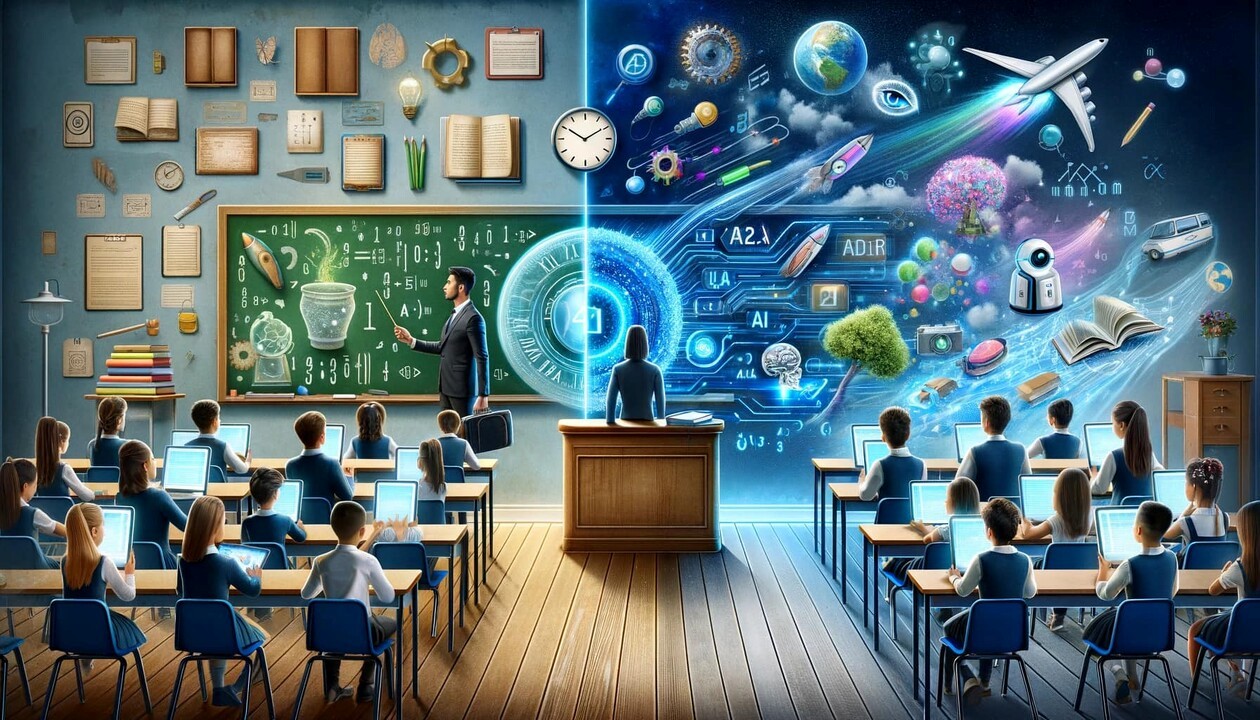Description
Copyright infringement not intended
Picture Courtesy: Linkedin
Context:
India is fast becoming a global hub for artificial intelligence, with major companies like OpenAI (creator of ChatGPT), NVIDIA, Google, and Microsoft making significant investments.
Details
Artificial Intelligence (AI) is reshaping the education sector by enabling customized learning experiences, streamlining evaluation processes, and improving access for diverse learners. Industry projections suggest that India's AI sector could expand significantly, with estimates indicating growth at a compound annual rate of 25–35%, potentially reaching $17 billion by 2027 (as per NASSCOM).
How Artificial Intelligence is transforming education?
- Personalized Learning Experiences: AI allows learning platforms to adapt content to each student’s pace, strengths, and learning style. This personalization leads to deeper understanding and better academic performance.
- Reducing Administrative Load for Teachers: By automating routine tasks such as grading, attendance tracking, and lesson planning, AI helps teachers save time and redirect their focus toward student engagement and interactive instruction.
- Improving Access to Quality Education: AI-driven solutions are closing educational gaps by offering remote learning opportunities and translating content into multiple languages, making top-quality education accessible even in underserved areas.
- Academic Support Through Virtual Tutors: AI-powered virtual assistants and chatbots act as round-the-clock academic helpers, addressing student queries and clarifying difficult concepts at any time.
- Enabling Multilingual and Global Learning: AI-powered translation tools facilitate learning in various languages, making it easier for students to access educational resources in their native language and promoting inclusive, global learning.
How AI use in education may Undermine critical thinking?
- Encouraging Passive Learning: When students depend heavily on AI-generated responses, they may start accepting information without evaluating its accuracy or context. This passive consumption of content weakens their ability to think independently and critically.
- Weakening Problem-Solving Skills: The convenience of instant AI solutions can discourage learners from working through complex problems themselves. Over time, this can impair their logical reasoning and reduce their ability to approach challenges methodically.
- Over-Reliance on AI for Academic Tasks: Using AI tools extensively for writing and research can diminish a student’s originality, creative thinking, and analytical skills. It can also lead to ethical issues like academic dishonesty and superficial engagement with course content.
How to balance AI integration in education while preserving critical thinking ability?
- Integrating AI with Inquiry-Driven Learning
- Building AI Literacy Among Students
- Rethinking Assessment Strategies
- Establishing Clear Ethical Guidelines for AI Use
- Encouraging Human-AI Collaboration
National Education Policy (NEP) 2020 and the role of Artificial Intelligence in education
- Embracing Technology for Educational Transformation
- Introducing AI and Coding in School Curriculum
- Integrating AI into Teacher Development
- AI-Based Assessment Systems
- Establishing the National Educational Technology Forum (NETF)
Conclusion
Ensuring that AI strengthens rather than undermines education, it must be thoughtfully integrated into teaching and learning. By fostering digital literacy, ethical awareness, and inquiry-based practices, institutions can empower students to use AI as a tool that amplifies critical thinking, not replaces it.
Source: The Hindu
|
Practice Question
Q. Discuss the role of AI in transforming teaching and learning practices in India. How can policy frameworks like NEP 2020 ensure a balanced and inclusive integration of AI in education?
|
Frequently Asked Questions (FAQs)
- Using AI in assessments
- Training teachers
- Establishing the National Educational Technology Forum (NETF)
- Loss of critical thinking
- Passive learning
- Ethical issues
- Reduced creativity and originality
- Digital divide
- Personalized learning paths
- Automation of routine tasks
- Enhanced digital literacy











